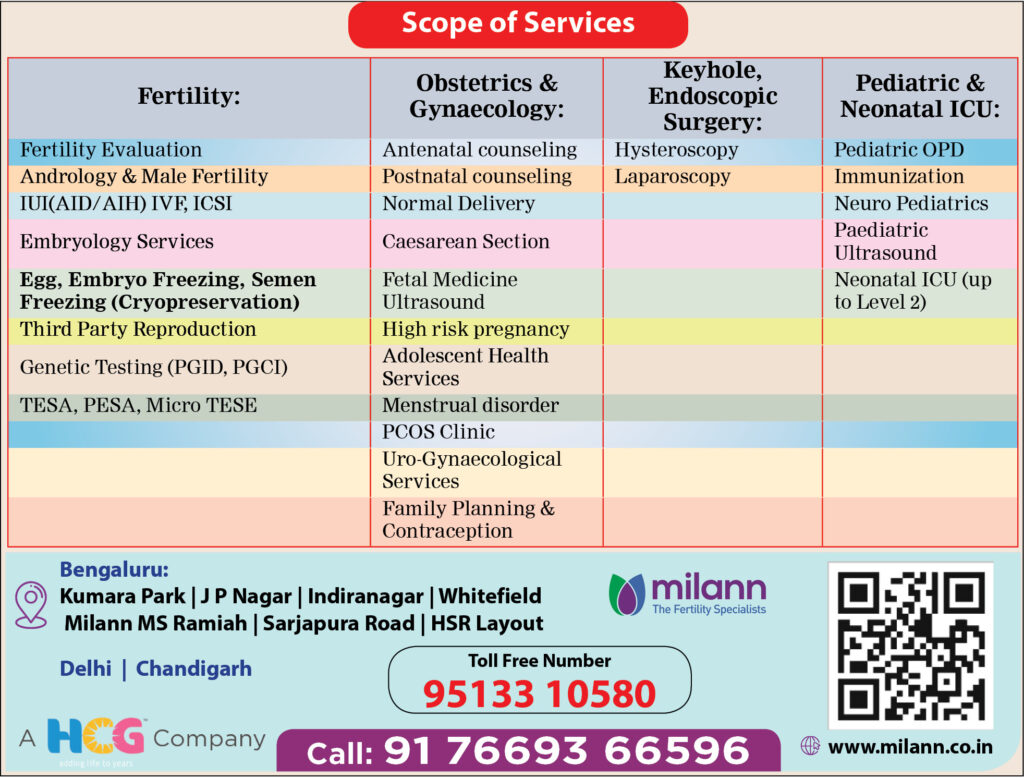Lifestyle to Enhance Fertility. This article explores the intricate connection between your lifestyle choices and fertility, offering valuable insights and practical tips to help you take proactive steps towards achieving your family-planning goals naturally.


1) Balanced diet:
Focus on diet rich in proteins, nutrients, including vitamins, minerals and antioxidants that support reproductive health.
Consume foods rich in antioxidants like vitamin C, vitamin E and selenium. Incorporate foods rich in omega – 3 fatty acids like fish, flaxseed, and walnuts. These helps protect sperms and eggs from oxidative damage.
Consume Zinc rich foods like lean meats, nuts and whole grains, and folate rich foods like green leafy vegetables and fortified cereals, which help to improve sperm and egg quality.
Avoid consumption of processed foods, red meat, sugary foods, aerated drinks, and excessive caffeine.
Keep yourself well hydrated, and aim to consume about 3-3.5 litres of water per day.
2) Regular exercise:
Engage in moderate intensity exercise like brisk walking, cycling, and swimming, to maintain a healthy weight and support hormonal balance. Avoid excessive high intensity workouts, as they may disrupt your menstrual cycle.
Incorporate yoga and stretching exercises into your routine. These can help reduce stress and improve blood flow to the reproductive organs.
Regular physical activity can help improve sperm quality and count
3) Quit smoking and limit alcohol:
Quitting smoking and reducing alcohol consumption can positively impact fertility. In men, it improves sperm quality and motility. In women, it improves egg quality and blood circulation to the uterus. Thus, it will help to get better quality embryos and have a healthy pregnancy.
4) Stress management:
Regular physical activity helps reduce stress hormones and promotes over-all wellbeing.
Practice stress reduction techniques like meditation, deep breathing, and relaxation, to promote hormonal balance.
Along with these, adequate sleep and time management will help reduce stress.
Talk to a therapist or counsellor if you are struggling to manage stress on your own.


5) Adequate sleep:
Ensure you are getting enough restful sleep each night to support hormonal regulation. Avoid screen time, such as mobiles, television, at least 1-2 hours before bedtime. Avoid intense workout after dinner, as it impacts quality of sleep. Also, avoid heavy meals at night, and try to have dinner before 8pm, such that the time interval between your meal and bedtime is at least 2 hours. All these help in improving quality of sleep, which indirectly has a positive impact on your reproductive health.
6) Avoid environmental toxins:
Minimize exposure to environmental toxins and pollutants that could negatively affect fertility. Few daily use products like plastics, food containers, and canned goods contain Bisphenol A, which causes hormonal imbalance and reduces fertility in men and women. Phthalates used in cosmetics and personal care products also cause decreased sperm production and poor-quality eggs. When choosing daily use products, try to obtain items which have the least amount of endocrine disrupting chemicals, or preferably products that are free of EDCs.
If you live in a polluted surrounding, consider using air purifiers to improve air quality.
Men planning pregnancy should avoid hot saunas, tight underwear, and working with laptops directly placed on the lap.
7) Timing and Tracking:
Understand your menstrual cycle and track ovulation to optimize chances of conception. You can track your ovulation using applications that help to track, or using ovulation kits. It is always better to consult a doctor to understand how to track ovulation better. If you have irregular cycles, or any other medical condition, seek help from a fertility consultant.
Conclusion:
Lifestyle choices play a crucial role in determining an individual’s fertility. A balanced diet, regular exercise, stress management and avoiding harmful substances are all key components of a fertility supportive lifestyle. By making informed choices and adopting healthier habits, individuals can optimize their chances of successful conception and pave the way for a healthier reproductive journey.


Dr. Vandana Ramanathan
Consultant – Reproductive Medicine
Milann Fertility Centre











